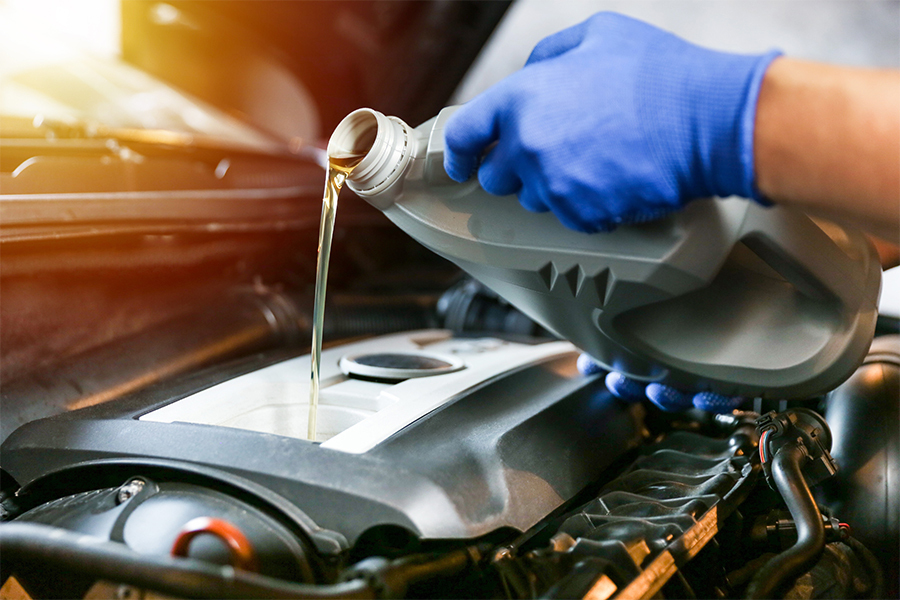Controlling odours in automotive lubricant production
One way to ensure business continuity is to keep odorous emissions as low as possible, maintaining harmonious relations with the local community and the authorities. DESOTEC’s mobile and sustainable filtration solutions treat a huge variety of odorous molecules, so your site workers, visitors, and neighbours can breathe safely at all times.
The problem
A German company produces lubricants, aerosols, and detergents in their automotive factories. It operates on a discontinuous basis.
Its lubricants contain a large number of organic ingredients, including alcohols, alkanes, ketones, N-Methyl-Pyrrolidone (NMP), and Methyl tert-butyl ether (MTBE).
Many of these compounds are odorous. Therefore, the company must treat emissions from its mixing vessels and filling stations to meet a limit of 50 mgC/L.
The firm got in contact with DESOTEC 10 years ago to find a long-lasting solution to silence its odour complaints.


The solution
Initially, we installed two small filter units, our Aircon 3000 models, to treat a combined flow rate from several different sources of 8,000 m³/h.
However, it soon became apparent that a single bigger Aircon H filter would be a more efficient set-up, reducing the number of filter exchanges from six-to-seven per year to three-to-four. While DESOTEC filters are easy to exchange, taking just half-an-hour on average, companies are understandably eager to keep hassle and expense to an absolute minimum.
Recently, the company switched from using a coal-based type of activated carbon to DESOTEC’s renewable product made from coconut shells. We developed this as part of our ongoing efforts to increase the sustainability of our filtration model, from sourcing greener raw materials to spent carbon recycling and reactivation. This solution helps both DESOTEC and our partners to reach our shared green goals.
The results
The company has used DESOTEC solutions at its site for more than 10 years. The filters continue to operate smoothly and efficiently, protecting their business from odour complaints.
DESOTEC can easily tweak filtration set-ups after installation, as in this case, thanks to the rental of our mobile units. With fixed facilities, such as regenerative thermal oxidisers (RTOs), it’s far harder to do so.
Many companies in the automotive value chain handle odorous molecules. Acrylates are a serious problem, as they smell strong even at very low concentrations. They are often emitted by UV coatings. These are frequently adopted by manufacturers to bring down emissions of volatile organic compounds (VOCs) but have the unwelcome side effect of increasing odours. DESOTEC’s filters treat these emissions successfully, ensuring that companies meet both VOC and odour limits.
As part of our full-service filtration solution, DESOTEC handles all carbon waste safely and sustainably. We transport saturated filters away from customers’ sites to our own facilities for analysis and disposal. All adsorbed molecules are destroyed in our furnaces, which are continuously monitored to ensure that only harmless water vapour exits the chimney. Carbon is reactivated wherever possible creating a circular business model that drives down costs and boosts our sustainability.
Contact DESOTEC today
Our experts would be delighted to discuss how our solutions could be tailored to your business purification needs. Get in touch with us today.
Contact our expertsContact DESOTEC today
Our experts would be delighted to discuss how our solutions could be tailored to your business purification needs. Get in touch with us today.
Contact our experts-
Air and Gas Purification
Our sustainable filtration solutions ensure air purification, odor control, and high quality process gases such as biogas and biomethane. -
Our unique service
Our closed-loop, full-service model is as unique as your business needs. We’ll define the right filtration setup and safely recycle filtration waste, making it easy to go green. -
Your Sustainability Journey
Like you, we care about protecting our air, water, and soil for future generations. Our filtration solutions help you meet environmental standards, reducing your carbon footprint.


